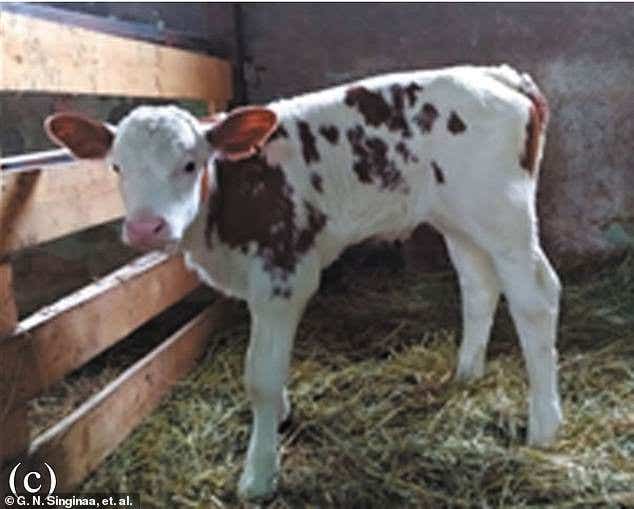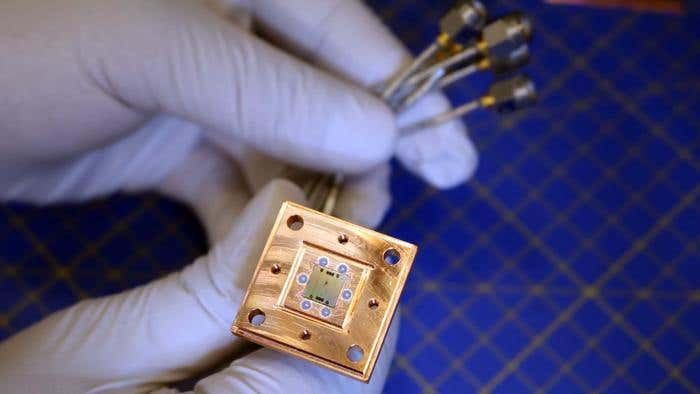Russian Researchers Clone Cow To Produce Milk for Lactose Intolerant People
This experiment was carried out with an aim to produce hypoallergenic milk for those who are allergic to dairy products.

[July 7, 2021: Miguel Brown]
Researchers at the Ernst Federal Livestock Science Center at the Skolkovo Institute of Science and Technology in Moscow produced the first viable cloned calf in Russia. She was 63 kilograms when she was born on April 10, 2020. The scientists then spliced her genes and were able to remove beta-lactoglobulin, which causes lactose intolerance in humans, in the hope of producing hypoallergenic milk. A paper describing the experimental results of the genetically edited cows was recently published in the journal Doklady Biochemistry and Biophysics.
A team led by Galina Singina of the Ernst Federal Science Center for Animal Husbandry cloned the unnamed calf using the somatic cell nuclear transfer (SCNT) method. In this method, the nuclei are transferred from normal cells of a donor animal to an egg and then the nuclei are removed. The researchers then implanted the resulting embryo into the uterus of the cow that she carried to maturity.
The researchers used Nobel Prize-winning CRISPR/Cas9 technology to remove PAEP and LOC100848610, the genes representing beta-lactoglobulin.
Now, the team will impregnate a herd with embryos of the edited genes and will thus, create a generation of cattles that will naturally produce lactose-free milk.
The researchers used Nobel Prize-winning CRISPR/Cas9 technology to remove PAEP and LOC100848610, the genes representing beta-lactoglobulin.
Now, the team will impregnate a herd with embryos of the edited genes and will thus, create a generation of cattles that will naturally produce lactose-free milk.
For her first year, the calf was kept in a separate enclosure along with her mother. After she became an adult in May, she was kept with other cows on “daily pasture”. Now, after 14 months, she is more than 410 kilograms and appears healthy with a normal reproductive cycle, say researchers.
A quick tutorial on modern cloning can be found below.
This experiment was carried out with the aim to produce hypoallergenic milk for those who are allergic to dairy products. Around 70% of the world has some form of lactose malabsorption. According to Skoltech’s associate professor Sergiev, this experiment will benefit “future agriculture”.
Beta-lactoglobulin, the main allergen of milk, is not an easy target because there are four copies of the gene in the bovine genome. So far, the best results the researchers have achieved are three out of four. According to Sergiev, this is enough because “perfect” animals can be produced using traditional breeding techniques.
Like these kind of feel good stories? Get the Brighter Side of News' newsletter.
Tags: #New_Innovation, #Animals, #Cloning, #The_Brighter_Side_of_News
Joseph Shavit
Head Science News Writer | Communicating Innovation & Discovery
Based in Los Angeles, Joseph Shavit is an accomplished science journalist, head science news writer and co-founder at The Brighter Side of News, where he translates cutting-edge discoveries into compelling stories for a broad audience. With a strong background spanning science, business, product management, media leadership, and entrepreneurship, Joseph brings a unique perspective to science communication. His expertise allows him to uncover the intersection of technological advancements and market potential, shedding light on how groundbreaking research evolves into transformative products and industries.



